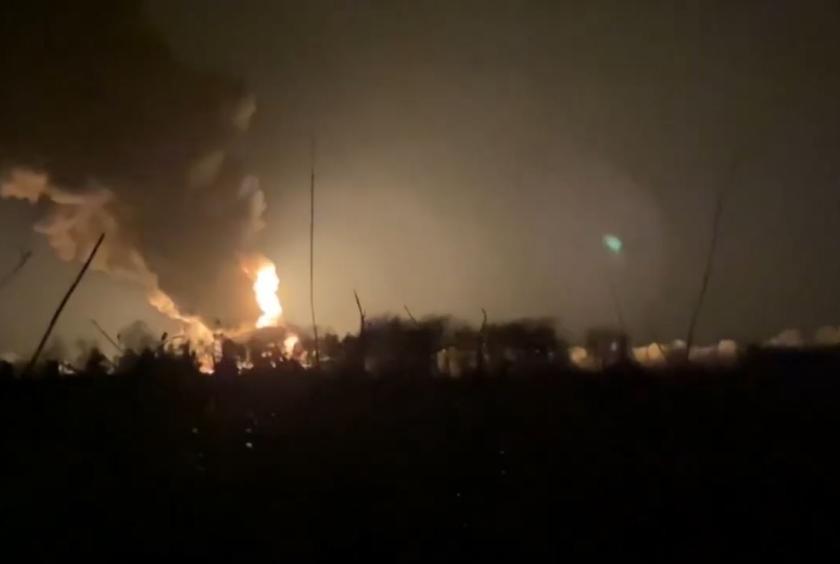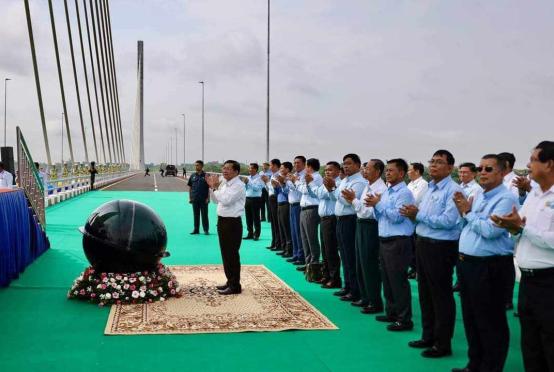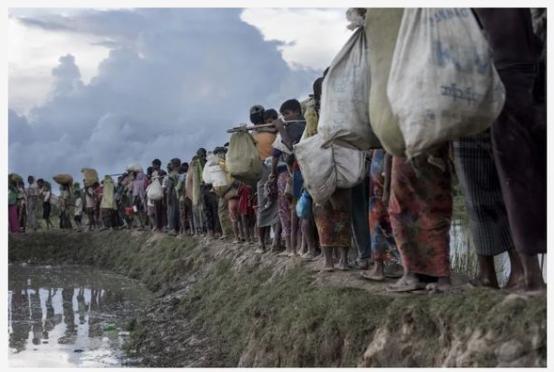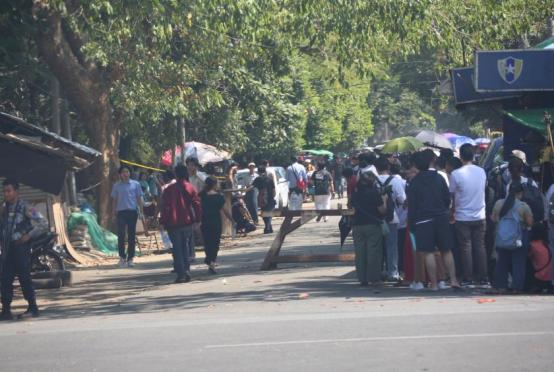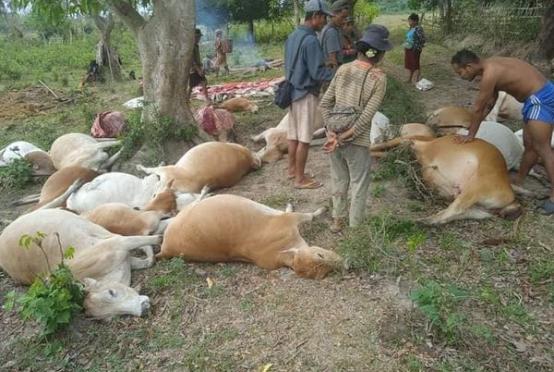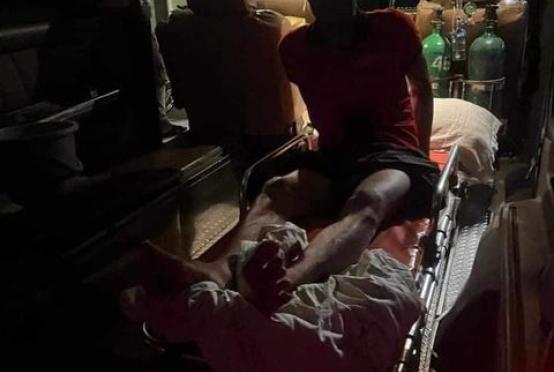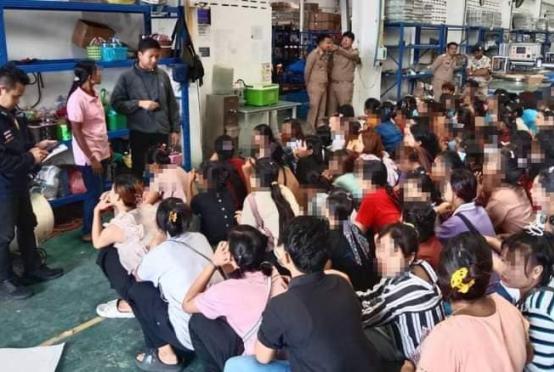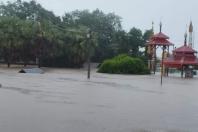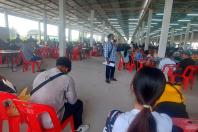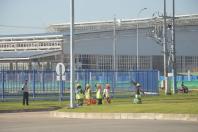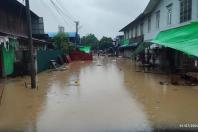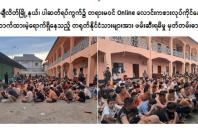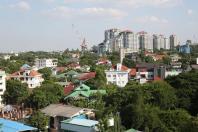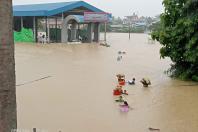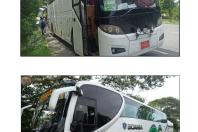KYIV (REUTERS) - Ukrainian forces were battling Russian troops on the streets of Ukraine’s north-eastern city of Kharkiv on Sunday (Feb 27), said regional governor Oleh Sinegubov.
"The Russian enemy’s light vehicles have broken into Kharkiv, including the city centre," Mr Sinegubov said.
"Ukraine’s armed forces are destroying the enemy. We ask civilians not to go out."
Videos published by Mr Anton Herashchenko, adviser to the interior minister, and Ukraine’s State Service of Special Communications and Information Protection showed several light military vehicles moving along a street and, separately, a burning tank.
Russian forces attacked oil and gas facilities, sparking huge explosions, officials said, as Western allies prepared new sanctions, including banishing key Russia banks from the main global payments system.
Ukrainian forces were holding off Russian troops advancing on the capital, Kyiv, said President Volodymyr Zelensky as the biggest assault on a European state since World War II entered its fourth day.
Russian missiles found their mark, including a strike that set an oil terminal ablaze in Vasylkiv, south-west of Kyiv, the town's mayor said. Blasts sent huge flames and billowing black smoke into the night sky, online posts showed.
There were also reports of heavy fighting near Ukraine's second city, Kharkiv, in the north-east, where Russian troops blew up a natural gas pipeline, a Ukrainian state agency said.
The gas blast there sent a mushroom cloud up into the darkness.
"The enemy wants to destroy everything," said the mayor of Vasylkiv, Ms Natalia Balasinovich.
Russian troops later entered Kharkiv, an Interior Ministry adviser, Mr Anton Herashchenko, said on Telegram.
Videos posted by him and a state agency showed several military vehicles moving on a street and, separately, a burning tank.
Russian-backed separatists in the eastern province of Luhansk said a Ukrainian missile had blown an oil terminal in the town of Rovenky.
Russian President Vladimir Putin launched what he called a special military operation on Thursday, ignoring weeks of Western warnings and saying the "neo-Nazis" ruling Ukraine threatened Russia's security - a charge Kyiv and Western governments say is baseless propaganda.
Reuters witnesses in Kyiv reported occasional blasts and gunfire in the city on Saturday night but it was not clear where this was coming from.
"We have withstood and are successfully repelling enemy attacks. The fighting goes on," Mr Zelensky said in a video message from the streets of Kyiv posted on his social media.
A US defence official said Ukraine's forces were putting up "very determined resistance" to Russia's air, land and sea advance, which has sent hundreds of thousands of Ukrainians fleeing westwards, clogging major highways and railway lines.
The United States and its European partners said they also would impose restrictions on Russia's central bank to limit its ability to support the rouble and finance Mr Putin's war effort.
"We are resolved to continue imposing costs on Russia that will further isolate Russia from the international financial system and our economies," said a statement from the US, France, Germany, Canada, Italy, Britain and the European Commission.
After initially shying away from such a move largely because of concern about the impact on their economies, the allies said they committed to "ensuring that selected Russian banks are removed from the SWIFT messaging system".
They did not name the banks that would be expelled, but an EU diplomat said some 70 per cent of the Russian banking market would be affected.
The decision - which the French finance minister had called a "financial nuclear weapon" because of the damage it would inflict on the Russian economy - deals a blow to Russia's trade and makes it harder for its companies to do business.
SWIFT, a secure messaging network that facilitates rapid cross-border payments, said it was preparing to implement the measures.
Sanctions on Russia's central bank could limit Mr Putin's use of his more than US$630 billion (S$853 billion) in international reserves, widely seen as insulating Russia from some economic harm.
Google barred Russia's state-owned media outlet RT and other channels from receiving money for ads on their websites, apps and YouTube videos, similar to moves Facebook made.
The Kremlin said its troops were advancing again "in all directions" after Mr Putin ordered a pause on Friday. Ukraine's government said there had been no pause.
Particularly in northern Ukraine, Russia's forces "have been frustrated by what they have seen is a very determined resistance", the US official said, without providing evidence.
A Ukrainian presidential adviser said about 3,500 Russian soldiers had been killed or wounded. Western officials have said intelligence showed Russia suffering higher casualties than expected.
Russia has not released casualty figures and it was impossible to verify tolls or the precise picture on the ground.
At least 198 Ukrainians, including three children, have been killed and 1,115 people wounded, Interfax quoted Ukraine's Health Ministry as saying.
Interfax later cited the regional administration in Donetsk, eastern Ukraine, saying 17 civilians had been killed and 73 wounded by Russian shelling. Moscow says it is taking care to avoid civilian sites.
Ukraine, a democratic nation of 44 million people, won independence from Moscow in 1991 after the fall of the Soviet Union and wants to join the North Atlantic Treaty Organisation and the EU, goals Russia opposes.
Mr Putin has said he must eliminate what he calls a serious threat to his country from its smaller neighbour, accusing it of genocide against Russian-speakers in eastern Ukraine - something Kyiv and its Western allies reject as a lie.
United Nations refugee chief Filippo Grandi said more than 150,000 Ukrainian refugees have crossed into Poland, Hungary, Moldova and Romania.
US President Joe Biden approved the release of up to US$350 million worth of weapons from US stocks, while Germany, in a shift from its longstanding policy of not exporting weapons to war zones, said it would send anti-tank weapons and surface-to-air missiles.

